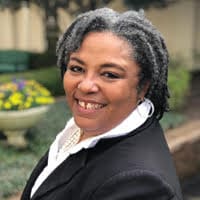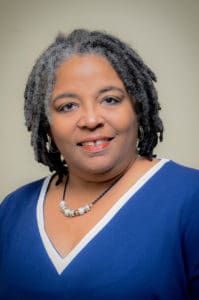Mending Systemic Disparities through Mediation. Member Spotlight: Kabrina Bass
Karina Bass, four times trained mediator, started her career at Xerox as a system analyst. Working in corporate America for 15 years, Kabrina implemented and measured communication processes and assisted in the business process within the company. As a systems analyst for Xerox, Kabrina also became a part-time secretary for the president of the NAACP and the Faith Community Alliance of Rochester. She became part of an initiative to address Eastman Kodak’s years of discrimination cases brought to the NAACP, where they created a group-designed peer review process to address the inequities. Through her unknowingly strong mediation skills, she helped rectify 30 years of discrimination towards black employees within the company. Many employees were given pay raises, job promotions, and increased coverage as part of the rectification process. At the time, Kabrina admits, “I knew mediation in the terms of social justice, but I did not know what it really entailed”. All her life she claims she believed in data, in strong evidence, yet through this experience, she realized the depths of her facilitative communication skills. Kabrina confesses that she was not fully aware then, but looking back, she was indeed “the source of the change that occurred”.
Spiritual Formation from the Womb to the Tomb
 Kabrina’s career drastically shifted when her mom became ill and she transitioned into her mother’s primary caregiver. This dramatic move fueled Kabrina’s desire to work in the nonprofit industry and help others. She began addressing the racial disparity within her community, Rochester, New York and aimed to fix the relationship between police and community members. She began her university education at Columbia College, studying a B.A. in Religion with a minor in Communications. She then obtained her first Masters, also in Religion, at the Lutheran Theological Southern Seminary in 2012. Her thesis focused on spiritual formation, “from the womb to the tomb”. She was honored by the Interdenominational Theological Center of Atlanta for her work in Christian Education and her role in shaping spiritual formation in local congregations.
Kabrina’s career drastically shifted when her mom became ill and she transitioned into her mother’s primary caregiver. This dramatic move fueled Kabrina’s desire to work in the nonprofit industry and help others. She began addressing the racial disparity within her community, Rochester, New York and aimed to fix the relationship between police and community members. She began her university education at Columbia College, studying a B.A. in Religion with a minor in Communications. She then obtained her first Masters, also in Religion, at the Lutheran Theological Southern Seminary in 2012. Her thesis focused on spiritual formation, “from the womb to the tomb”. She was honored by the Interdenominational Theological Center of Atlanta for her work in Christian Education and her role in shaping spiritual formation in local congregations.
Religion has always been an extremely important component in Kabrina’s life and has helped develop her mediation career. Her grandfather was her first pastor and her mother, who is the oldest of 26 children, has 7 pastors within the family. “Religion is a very strong part of who I am”, Kabrina explains, “It’s part of my identity”. Being part of a church, Kabrina realizes how necessary mediation is within religious establishments. People in faith-based organizations want to maintain relationships and they mistakenly become involved in groupthink because they do not want to be against the pastor or other “church leaders”. Kabrina maintains that being involved in the church for so long has helped her to separate her emotions from the Christian church and accept all religions and beliefs so that she is able to evaluate issues recognizing potential biases.
Bringing mediation back to the facts
After receiving four accredited mediation trainings, Kabrina started professionally practicing mediation in 2018. She currently practices family and civil mediation. Kabrina states, “I’m the one in mediation that says, ‘we’re going to cut to the chase, and identify what you need, not what you want’”. Her background in communications and staff oversight has aided her ability to communicate in different settings with unique cases. She stresses the importance of community conflict-resolution centers because “it makes you look at not only the specific cases that you’re mediating but the system that made this become an issue”.
Increasing Mediation’s Global Presence
 Kabrina continues her education today, obtaining her second masters at Kennesaw State University in Conflict Management, Peace Studies and Conflict Resolution, while she works as an executive director at Midlands Mediation Center. One of her many ambitions is to increase the mediation center’s virtual presence. She has worked with over 1500 churches, teaching them how to become global and engage through community teachings.
Kabrina continues her education today, obtaining her second masters at Kennesaw State University in Conflict Management, Peace Studies and Conflict Resolution, while she works as an executive director at Midlands Mediation Center. One of her many ambitions is to increase the mediation center’s virtual presence. She has worked with over 1500 churches, teaching them how to become global and engage through community teachings.
Kabrina’s background in the digital sphere has proved helpful throughout her career. After joining the National Association for Community Mediation (NAFCM)’s strategic partners and resource committee, Kabrina was invited to be a part of the board. As part of her orientation, she attended a conference, where she first encountered MBBI. She met S. Martin, former chapter president of MBBI-LA and board member of NAFCM. Engaging in MBBI’s projects, Kabrina became involved in the Trust Network, implementing the community response network in her town Columbia, South Carolina. Kabrina hopes to strengthen conflict resolution awareness within our own borders, explaining that the U.S. is excellent at analyzing conflict elsewhere, but fails to recognize the divides that exist within its borders.
Two Lessons from 2020
When the pandemic first hit, NAFCM and MBBI held a town hall meeting that Kabrina says, “was the most humbling experience I ever had”. She highlights that at the Town Hall she heard individuals from other countries speak about their crisis. She said, “I heard about people walking over dead bodies, lack of food, the inability to get to the hospital, and I left that session saying, ‘and we complain about toilet tissue’”. From the heavy toll, 2020 has brought, Kabrina reflects on the two things she’s learned this year. First, that fish do not know they’re in water because they’ve lived in water their whole life. Mirroring how the United States is with racism, “we do not realize we’re racist because we always have been”. The second is to “know what you don’t know”; any topic that you have not comprehended is an opportunity to learn and understand one another. To understand ourselves, we must realize the vacancies that exist within our own knowledge.
Article by Emily Shultis, MBBI Writer
